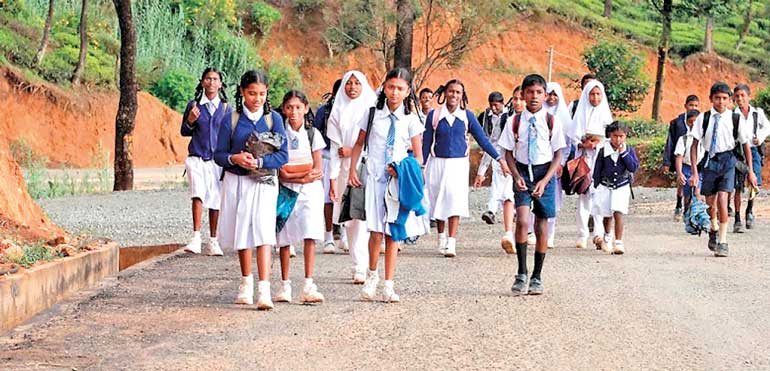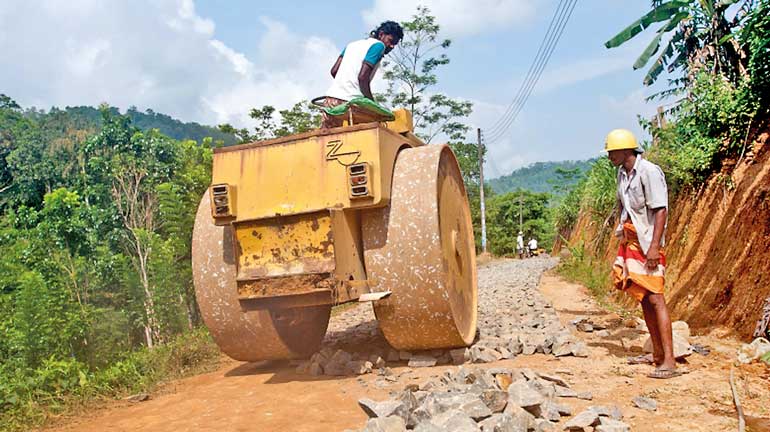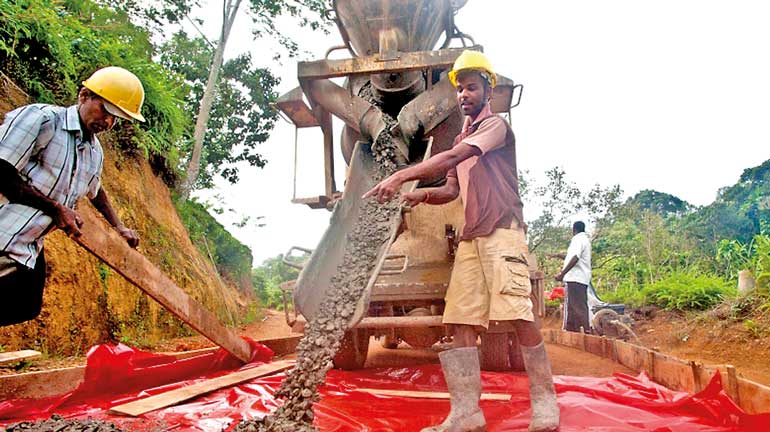Wednesday Feb 25, 2026
Wednesday Feb 25, 2026
Monday, 16 May 2016 00:00 - - {{hitsCtrl.values.hits}}

School attendance of both students and teachers has shown a definite improvement, attendance increased by an average of 45% - ranging from 40% to 60% with seasonal fluctuations.

Even though Sri Lanka has the greatest road density among South Asian countries, its infrastructure suffered from neglect as a result of decades of civil conflict.

Over the last 10 years, RSAP has enabled the road sector in Sri Lanka to develop its all-round capacity for progress and sustainability.
Www.worldbank.org: When the time came for Hitihami Nandawathi, a homemaker in the district of Monaragala, to give birth to her fourth child, she needed to think carefully about how she would get to the doctor. Because of the bad roads, it took a day to get to the clinic. A month before delivery, she moved in with her uncle in Bibile to be closer to the hospital and stayed there for a month. She acknowledged it was both inconvenient and expensive. Until 2004, Hitihami and women like her living in rural Sri Lanka faced a similar predicament. Access to good medical care, business opportunities, and transportation of farm products to market was hampered by poor roads.
Even though Sri Lanka has the greatest road density among South Asian countries, its infrastructure suffered from neglect as a result of decades of civil conflict. Contributing to the disrepair and deterioration of roads was the increasing traffic congestion in the national roads, which compelled the government to increase road capacity - the country saw traffic increase by 6% every year.
Building a lasting partnership towards the future
In 2004, the Government of Sri Lanka (GOSL) sought the World Bank’s re-engagement in the road sector. The Government’s development strategy highlighted the urgent need to develop its roads and increase connectivity and interaction between the provinces for both social integration and economic development. This coincided with the World Bank’s assistance strategy that supported investment in roads as an essential infrastructure development area for pro-poor growth linked to shared prosperity. Both strategies emphasised the importance of developing private industry for road construction and maintenance. Together with other development partners, the World Bank helped Sri Lanka reconstruct its national and rural roads through the Road Sector Assistance Project (RSAP). RSAP’s development objective was to lower transportation costs through the sustainable delivery of an efficient national road system that serves the needs of road users and the Sri Lankan public.
The projects focus was to address the poor condition of the road network by rehabilitating key strategic roads across the entire country to provide overall connectivity and quick access to markets. The project also helped maintain existing roads through designing and refining systems to manage them better them. This has helped create the capacity within the Roads Development Authority and the industry to reach a new standard of quality that has been sustained through a shift in culture. The establishment of the Road maintenance Trust Fund enabled the transparent allocation of resources and efficient monitoring of road maintenance. The project focused not only on the rehabilitation of roads but also steered towards achieving overall sustainability.
Building relationships with the community to drive and sustain results
The project gave rise to a new form of social responsibility among contractors. These included repairs to access roads, construction and renovation of buildings, and providing for the needs of service providers such as police stations, schools and health clinics. These actions of contractors helped create goodwill between the contractors and the community and this, in turn, had a positive impact on the relationship between the community and the project, especially in managing conflicts and disputes.
To address the maintenance needs of rural roads, the project incorporated a small pilot component that improved the livelihood of the rural populations significantly. The percentage of families with immediate access to an “All Weather Road” rose from 48.3% to 70.9%. Agricultural sales points increased by 160% and service providers from communications centres to repair workshops – increased by 143%. 14% of students moved from their poorly resourced schools and gained admission to schools located in towns – with better facilities and better quality teachers. Moreover, school attendance of both students and teachers showed a definite improvement, attendance increased by an average of 45% - ranging from 40% to 60% with seasonal fluctuations.
A competitive market environment emerged, with small enterprises diversifying their range of products and increasing annual turnover. Improved roads also created a competitive environment for marketing agriculture produce, with local producers better able to negotiate for favorable prices. Improved labor mobility and employment opportunities for people saw household incomes taking an upward turn. Road development encouraged new settlements – leading to increased land values. Due to the reduction of transport costs, traffic volume in terms of trishaws, cars, busses and lorries increased.
Over the last 10 years, RSAP has enabled the road sector in Sri Lanka to develop its all-round capacity for progress and sustainability. The road reconstruction and maintainance benefited both the urban and rural sections of the country.
In the words of Hitihami Nandawathi: “The biggest benefit from the improved road is for us women… The present day mothers are fortunate because of the road”